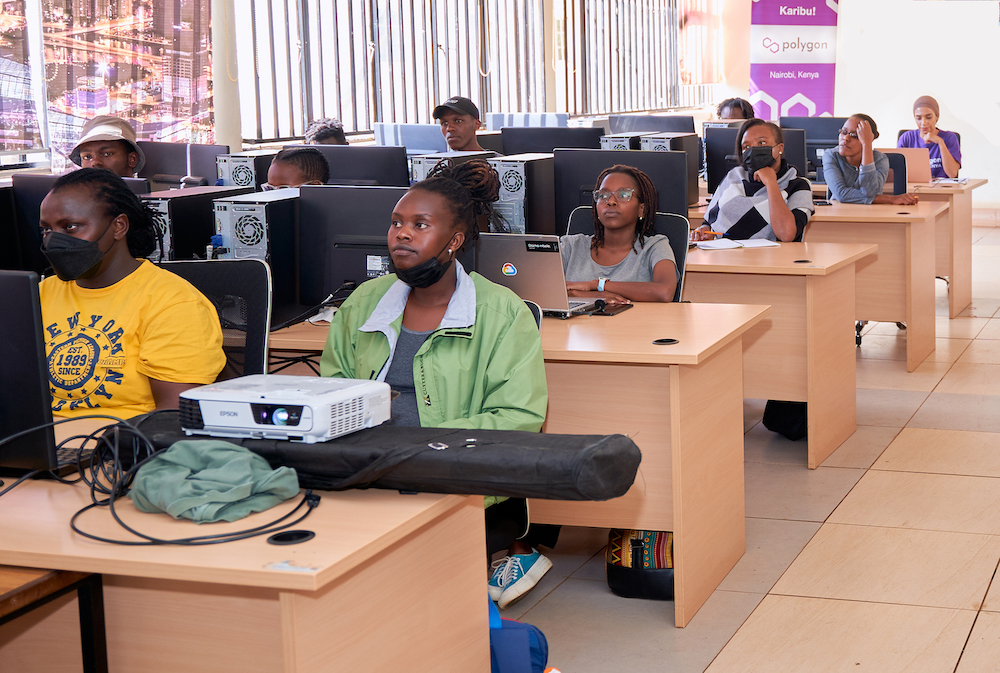Kenyan University Trained on Blockchain by Polygon Carry Hope for the Continent

From 11th– 15th July this year, students from Multimedia University were taken through an introductory training course on blockchain, organized by Impact+ and Polygon. Both organizations are ardent advocates of conscious blockchain technology, carrying out training and support for developers in this space across the world. Impact+, Polygon’s social impact arm, believes that local players with a deep societal understanding of the Kenyan context are well-positioned to use blockchain technology to build positive, viable, effective, and sustainable solutions to societal problems.
The training was meant to elicit trainees’ interest in blockchain technology, equip them with essential skills and challenge them to build scalable solutions to tackle challenges within their community. They didn’t disappoint.
When TechTrendsKE attended the training on the last day, we found an excited community of learners ready to execute every bit of the lessons picked. From the projects they presented, they had made significant progress within this period, and you could tell the huge difference between their first days of training and the tail end of it.
Organized in groups of five, they shared brilliant ideas on how Africa could better its healthcare systems, conduct smooth elections, participate in decentralized crowdsourcing, and have better education management enhanced by blockchain technology. The students had developed practical solutions to some of these enduring social challenges and invited their peers to review and offer critiques and insights.
In one of the presentations, Ann Gichuki, a self-taught Web# enthusiast, demonstrated how blockchain technology could be used to address school transport challenges to ensure that students are safe to and from school. According to the trainees, blockchain can be used to track the movement of the school vehicle and individual students without creating any breaks along the way.
Another project presented by Perminus King’ori, a fourth-year computer science student, showcased how blockchain can be used for electoral processes in African countries, taking advantage of its decentralized and impervious nature to preserve election integrity. Blockchain is nearly impossible to hack and offers more transparency to available systems.
Kent Fourie, one of the trainers who is also the founder and Chief Technology Officer (CTO) of South African-based Graphrica Inc, said that the weeklong training “made a lot of difference” in the way trainees initially perceived blockchain.
“They are now more receptive and ready to develop solutions to just about any problem,” he said. “We have planted the seeds, and we expect to have exceptional developers creating solutions for the world.”
The training funded by Polygon is just the beginning of the collaboration; many collaborations are expected with learning institutions and other interest groups.
Dr. Shaz Khalid, the Country Manager for Impact+ said that the two organizations are planning more engagements in August and September.
As blockchain uptake gains momentum across the continent, developers will be in high demand, signalling the need to upscale available talent through such engagements.
Kelvin Kariuki, an ICT lecturer at the university, lauded the organizers, saying such programs will go a long way in addressing challenges in urban and rural Africa.
Follow us on Telegram, Twitter, and Facebook, or subscribe to our weekly newsletter to ensure you don’t miss out on any future updates. Send tips to info@techtrendske.co.ke




One Comment